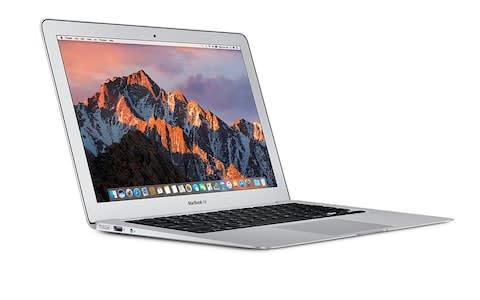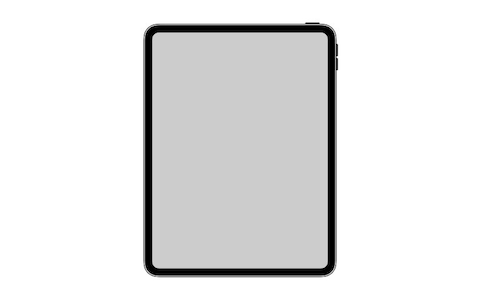
This article is more than
7 year old
The technology giant has released three new iPhone handsets as well as a new Apple Watch in the last two months, with updates to its tablet and laptop ranges now expected to follow.
The new devices come in the wake of Microsoft launching new versions of its Surface Laptop and Surface Pro tablet-laptop hybrid, both of which are direct rivals to Apple's computing products.
Here's everything you can expect at today's event.
The event kicks off at 2pm GMT today. The Telegraph will be liveblogging all the updates that are announced by Apple. The company will be streaming the event through its website.
New MacBooks are expected to be unveiled, possibly replacing the MacBook Air and offering a lower-priced alternative to the flagship MacBook Pro.
Apple does not rely on Macs nearly as much as it used to. The iPhone is its most important product, and accounts for more than half of its sales. The Apple Watch, initially maligned, is now selling strongly. And revenues from apps, software and cloud storage have become its new growth engine.
But for a company that prides itself on perfection, the state of the current Mac lineup is less than ideal, especially given the product’s place in the company’s history.
The original Macintosh in 1984 helped turn personal computers from a geek’s toolkit into a device for the home. 1998’s iMac saved Apple from bankruptcy and began the second Steve Jobs era. The MacBook Air in 2008, thin enough to pull out of a paper envelope, set a new standard for laptop design.
But these days, the Mac lineup, and in particular its laptop range, is a confusing one. The two lines that Apple has prioritised in recent years - the ultraportable 12-inch MacBook and the powerful MacBook Pro - both have their compromises.

The 12-inch MacBook is underpowered for its £1,249 price, while the MacBook Pro has been plagued by complaints of stuck keyboards that make typing impossible. The Touch Bar - the touchscreen strip above MacBook Pro’s keyboard introduced two years ago - has not proven to be a hit. A version without the Touch Bar exists, but has been left unloved, not receiving the speed upgrade this summer that models with the Touch Bar did.
It is perhaps no surprise, then, that the relatively ancient MacBook Air remains so popular despite its basic design not changing much since 2010. The existing MacBook Air, still on sale, has no high-definition “Retina” display, no modern USB-C ports, and by contemporary standards, a clunky design, but is still popular simply because a good alternative does not exist for many people.
So while in years past the MacBook Air was the default choice for new laptop buyers, there is now no clear candidate.
Many potential purchasers, this writer included, has held off on purchasing a new MacBook, hoping that the sweet spot of price, power and portability that the original MacBook Air provided will come along.
This has been seen in Apple’s financial results. Sales of Mac computers in the company’s last quarter were at their lowest for eight years.
Macs are now the only one of Apple’s business units where revenues are in decline. What’s more, this does not come against a backdrop of gloom for the PC market. Global sales of personal computers, which have been flat or in decline for years, are now growing.
The laptop has gone through something of a renaissance in recent years, with Microsoft’s Surface Book, Google’s Pixelbook and Huawei’s MateBook X all receiving critical acclaim.
Price will be crucial: £999 feels appropriate for a lot of people in a way that £1,299 doesn’t. Apple’s success may not hinge on the Mac any more, but it still has to show that it matters. If rumours are to be believed, it will feature an upgraded display and other mod-cons such as USB-C and faster processors.
A redesigned iPad Pro is also expected to be among the new products showcased, one that introduces an edge-to-edge display on the device for the first time.
It will have no home button, according to reports, and will come with both an 11-inch and a 12.9-inch screen design.
Many of these features now exist on its iPhones. Its facial recognition technology is already on its iPhone X and iPhone XS, and these updates would only bring its expensive iPad Pro range into line. It will be Apple's challenge to convince current iPad users they need this upgrade.
Apple has traditionally promoted iPads over computers. When Steve Jobs unveiled the iPad in 2010, he started talking about the tablet replacing laptops.
This carried on into Tim Cook’s leadership. After unveiling the iPad Pro in 2015, he told The Telegraph that “the iPad Pro is a replacement for a notebook or a desktop for many, many people”.
The Post-PC world arrived in a sense, but it arrived on bigger-screened smartphones, not on tablets, sales of which peaked in 2011. That means we still need devices with big screens to do our work on - and to choose between laptops and tablets.

It has been suggested the event could also be used to introduce a second generation set of the wireless AirPod earphones, as well as the AirPower charging pad, which was first announced last year but has not been publicly discussed by Apple since, having been earmarked for release in 2018.
Apple is expected to unveil an update to its Mac Mini. Its hardware has not been updated since 2014 and is increasingly growing obsolete.